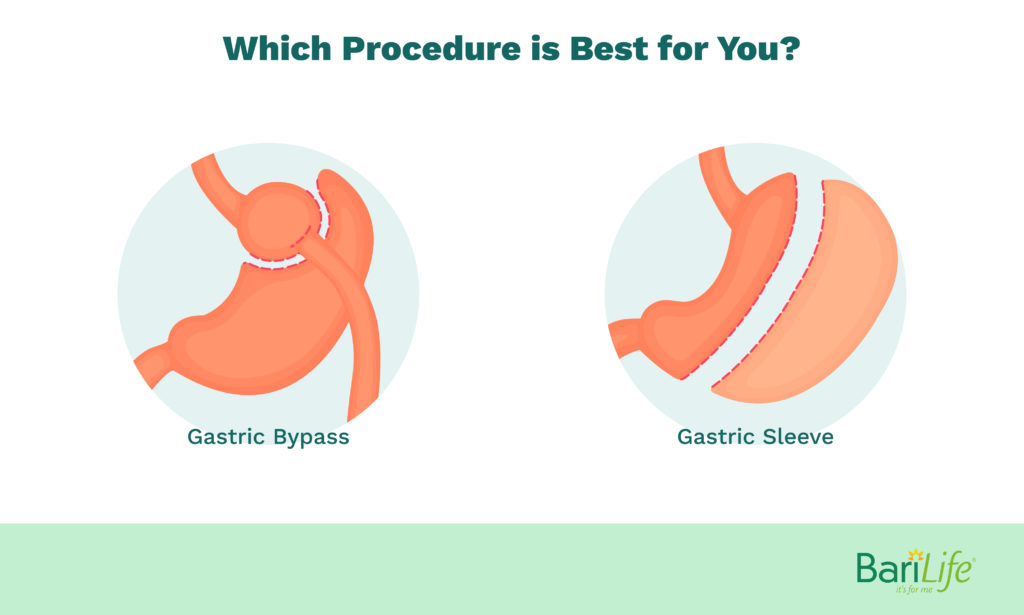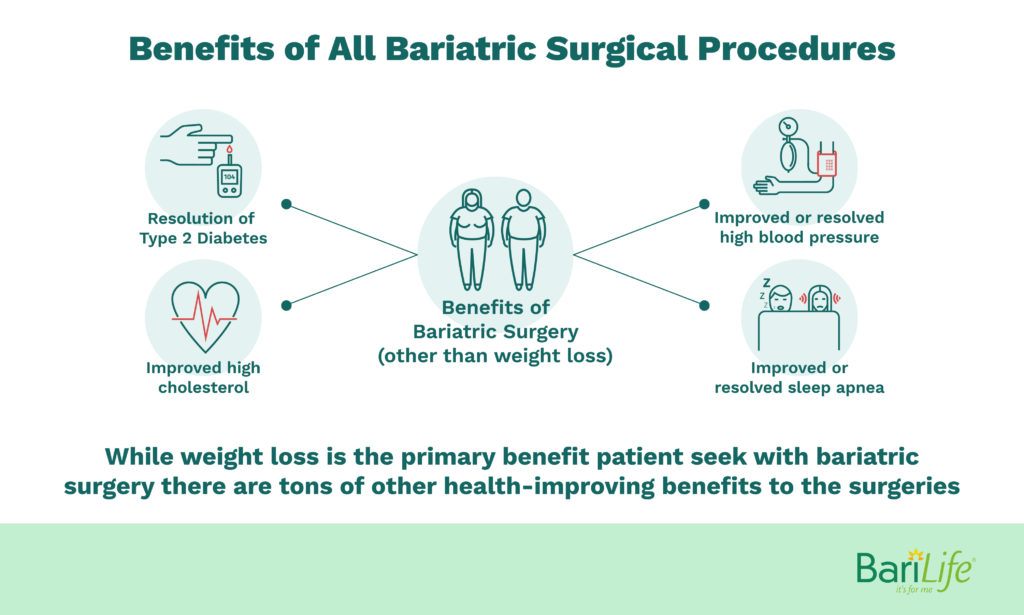ENTER YOUR EMAIL ADDRESS TO UNLOCK
15% OFF
on your first order
Some exclusions apply.
Although the two surgeries have similar outcomes, the procedures themselves are quite different.
Gastric Sleeve Gastric sleeve surgery is a laparoscopic procedure in which the procedure is performed through a few small openings in the abdomen. Most of the stomach is removed, leaving the remaining portion about 20% of its original size.
The new stomach is now a sleeve-shaped tube, and no longer a pouch to hold larger quantities of food. Because the stomach is now much smaller, patients feel full more quickly and for longer periods of time.
Gastric Bypass In contrast, gastric bypass surgery, also known as Roux-en-Y surgery, may be either laparoscopic or open, in which a traditional incision is made in the abdomen where the surgery is performed.
Your physician will determine which method is best for you by weighing the benefits and risks of each. Regardless, a pouch about the size of an egg is created using the top portion of the stomach. This new stomach pouch is then connected further down the small intestine, leaving part of the stomach and intestine bypassed.
Because the new stomach pouch is significantly smaller in size, similar to the gastric sleeve procedure, patients feel full after having only small amounts of food.
What are the complications? Bariatric surgery has been perfected over the years and is now considered safe and even comparable to other routine surgeries .
Some possible complications relating to bariatric surgery include:
Gastric sleeve As we continue to explore the pros and cons of gastric sleeve and gastric bypass surgeries, let’s start with the complications specific to gastric sleeve procedures:
Leakage where the stomach was stapled
Abdominal abscess
Stricture, or narrowing of the newly formed stomach
Gastroesophageal reflux, also known as heartburn Gastric bypass Some complications associated with gastric bypass are:
Recovering from bariatric surgery After bariatric surgery , you will remain in the hospital for several days. Your physician will provide you with guidelines regarding activity after being discharged home. Most can return to normal activities within 6-8 weeks.
How will my diet change? Bariatric surgery will alter how your body processes nutrients. You will also notice that your tolerance to certain foods change as well.
Immediately following surgery, you will be placed on a clear liquids diet and gradually advanced to soft and solid foods.
After the initial healing period has passed there are a few key areas in your diet that will require more attention than before. They are:
Vitamins and minerals.further supplementation .Protein intake. With both gastric bypass and gastric sleeve procedures the stomach is significantly smaller than it was previously. For this reason, it is important to choose wisely which foods you will gain the most benefit from. Protein should be the top priority to maintain lean muscle mass, help feel satisfied after eating, and encourage weight loss.Dumping Syndrome. A common condition that can occur after both gastric bypass and gastric sleeve surgeries, when food passes too quickly through the stomach into the intestines causing a variety of symptoms like nausea, stomach cramping, urgency, diarrhea. Although there are multiple factors that lead to dumping syndrome , it is often caused by having too much sugar, or carbohydrates, at one time. By altering your diet to include fewer carbohydrates at one sitting and more protein, people often find relief.BariLife offers a complete line of products to suit all your post bariatric surgery needs.
What about exercise? Physical Activity is highly recommended for both gastric bypass and gastric sleeve patients once healing from surgery has taken place, and your doctor has given you the green light to move forward with exercise.
A common recommendation for physical activity falls in line with the American Heart Association’s guidelines of 150 minutes each week.
Following these guidelines has been shown to improve weight loss after surgery as well as assist in maintaining weight loss long term.
Pros and cons of gastric sleeve and gastric bypass surgeries Now, let’s do a direct comparison of both procedures and delve right into the pros and cons of each .
Gastric sleeve Pros
Cons
Possibility of long term vitamin and nutrient deficiencies
Permanent procedure
Risk of surgical complications
Higher chance of complications in the early stages after surgery than gastric bypass Gastric bypass Pros
Cons
Possibility of long term vitamin and nutrient deficiencies
Most involved of all bariatric procedures leading to a higher possibility of complications
Permanent procedure
Often requires the patient to stay in the hospital longer than the gastric sleeve procedure Which procedure is best for me? Determining which procedure is right for you is a very personal decision. Our extensive look at these two surgeries should arm you with information to bring with you to your doctor.
Most bariatric surgeons will take the time to review the pros and cons of gastric bypass vs gastric sleeve procedures with you while tailoring their recommendations to your exact needs. Work with your doctor to find the best fit for you.
The long and short of it Gastric sleeve and gastric bypass surgeries fall under the bariatric surgery umbrella. They are both serious surgeries that come with risks and complications, yet are considered generally safe.
Each has its pros and cons that should be carefully considered when deciding which procedure is most appropriate for you.
By working alongside your doctor and taking into account all of the information provided here, we are certain you will make the decision that is best for you.

